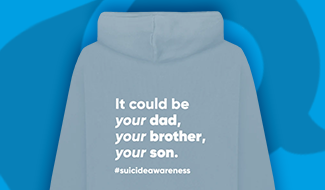My Ex has reported to Cafcass that she has been verbally and physically abused by me. This is not true. How do I defend myself?
The report will be to an officer of the Children and Families Court Advisory and Support Service (Cafcass) known as a Family Court Adviser (FCA). They have a duty of care towards, and must safeguard and promote the welfare of, the child. Their role is to complete an analysis of the circumstances and make recommendations to the Family Court regarding the best course of action and the arrangements for the child.
If any allegation of domestic abuse is relevant to deciding the arrangements for the child, it will be necessary for the Court to determine whether they are true or false.
It is not uncommon for allegations of domestic abuse to be made or feature in cases involving children. Domestic abuse is, of course, harmful to children and can put them at risk of harm, whether they are subjected to it or witness a parent being violent or abusive to the other.
It is not, however, for the FCA to decide who is telling the truth, that is the province of the Judge.
The FCA will be prevented from conducting a full case analysis and will be unable to make any final recommendations until presented with a firm factual foundation upon which to base their enquiries. The FCA cannot make recommendations in a vacuum without findings of fact being available to deliver the clarity required as to whether there has been verbal and/or physical abuse.
If any allegation of domestic abuse is relevant to deciding the arrangements for the child, it will be necessary for the Court to determine whether they are true or false (Family Procedure Rules 2010, PD12J). This is done by conducting a fact-finding hearing.
The party making the allegations will be expected to set out in a Schedule of Findings sought (sometimes called a Scott Schedule) a list of the allegations, cross referenced, where possible, to any corroborating evidence. The Schedule should set out the date each incident is said to have occurred and include a brief description of what is said to have happened and where. A response to each allegation will then be inserted so that it is clear to the Judge whether there is any acceptance and what is in dispute.
This type of hearing involves the Judge considering written evidence, such as any information held by the police, medical records and witness statements, and hearing oral evidence, which will include the cross-examination of witnesses.
The contested facts will be aired, the credibility, reliability and demeanour of the witnesses assessed by the Judge and all the evidence considered.
It is for the person making the allegations to prove, on the balance of probabilities, that the incident(s) did happen. The test – balance of probabilities – means that an allegation is only proved if the Judge is satisfied that each incident was more likely than not to have occurred. The burden of proof is, therefore, on the party making the allegation and not on the person who is said to have been the perpetrator.
Once the Court has decided whether each allegation did or did not happen, this will form the factual foundation upon which the case can proceed. This may include an assessment of the welfare needs of the child, which can now be completed by the FCA, and/or a risk assessment if any of the allegations are found to be proved.
Usually, the Court will direct that a transcript of the Judgment at the end of the fact-finding hearing be made available to assist the parties and any professionals involved in the arrangements for the children, including the FCA. This helpfully sets out the evidence considered by the Judge and explains what the Judge found, as well as the process of reasoning by which he or she arrived at any findings.
In the Family Court arena, the reference to a person defending themselves is not often heard. Typically, a party faced with allegations of domestic abuse, which are denied, will seek to challenge them. The Court is keen to encourage the use of appropriate terminology and the term defending is probably best left for use in the Criminal Courts.
Posted on July 5, 2018
















